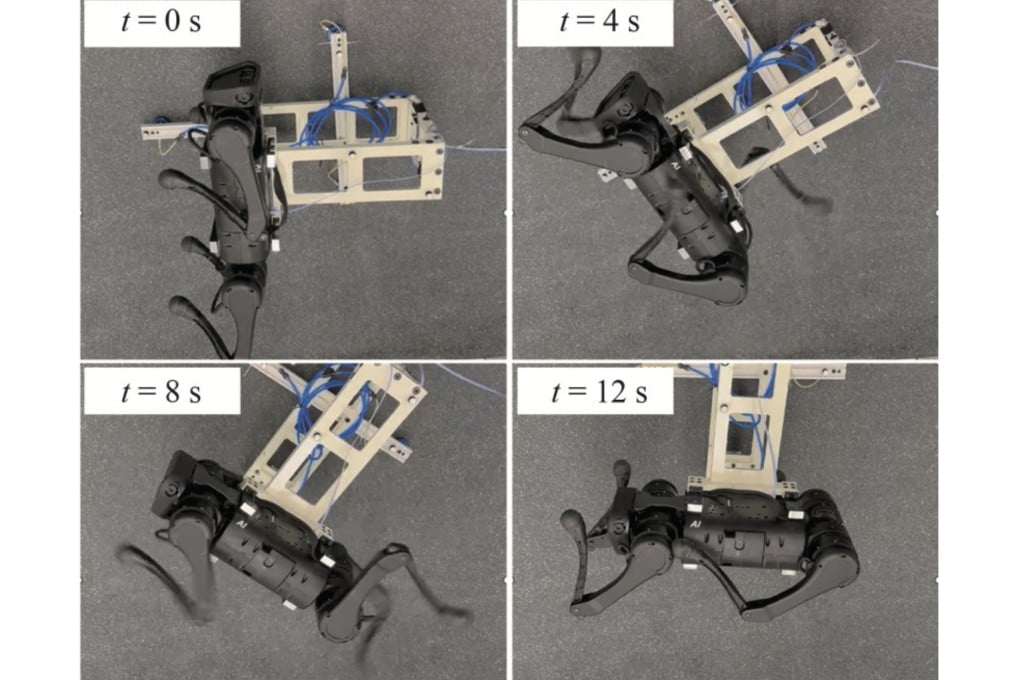This robot jumps and lands like a cat. It could be used to explore asteroids
Team in northeast China used artificial intelligence to train the robot to adjust its posture mid-air using its legs

Unlike traditional systems that rely on heavy, specialised stabilisation hardware, the robot used a “model-free” control system to swing its four legs in a coordinated motion, the researchers reported in the Journal of Astronautics last month.
That allowed the robot to correct its tilt and even reorient to face a new direction in the air.

“In the low-gravity environment of these [small celestial] bodies, robots undergo extended periods of free fall during each jump. It is essential to utilise this time to correct any altitude deviations induced by the jump, ensuring a safe landing or adjusting the yaw angle to modify their future trajectory,” the team wrote.
